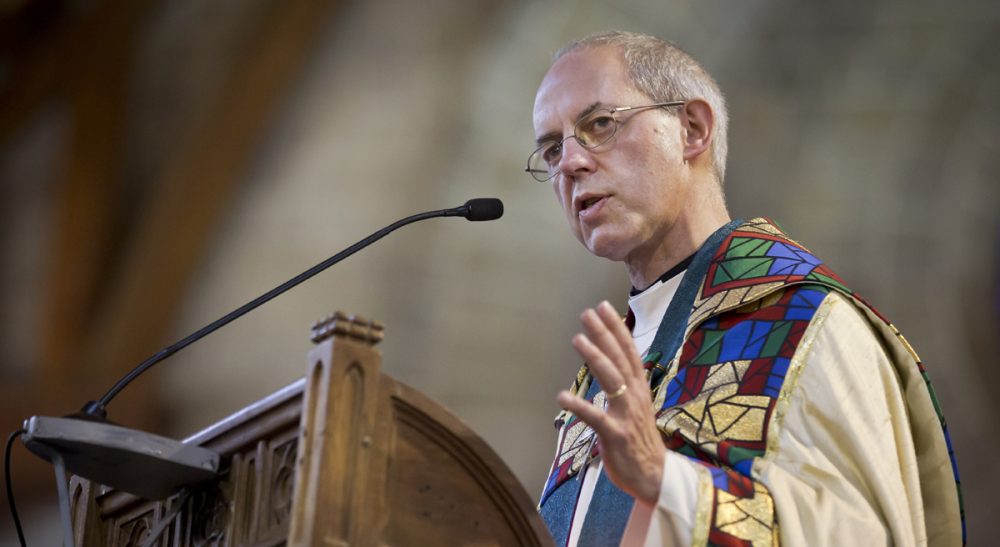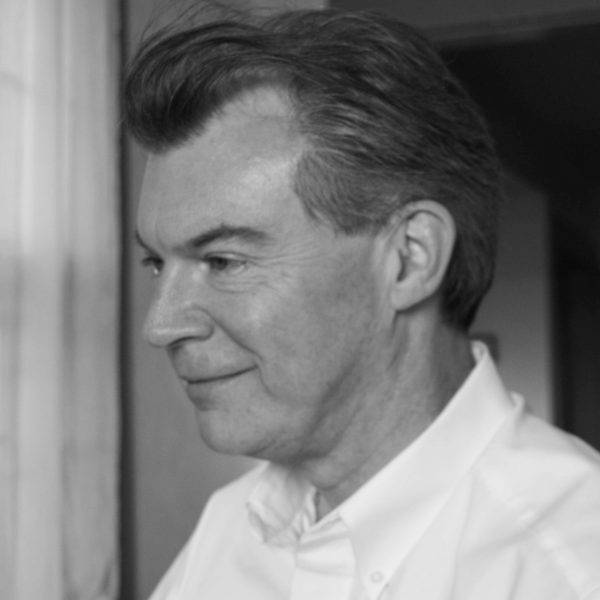Advertisement
Where's The Faith? Why Uncertainty Is Something To Believe In

We might as well confess (pun intended): It’s a weird time to be a person of faith these days. And I don’t mean “I’m-a-spiritual-but-not-religious” person. I mean a mosque-going, synagogue-going, church-going person, a person willing to leap from the safe confines of private belief to the public scrutiny of religious practice.
In just the past couple of weeks, the Archbishop of Canterbury, Justin Welby, expressed doubt about the existence of God in a public forum on the BBC. Replying to an interviewer’s straightforward question — “Do you ever doubt?” — Welby replied with unflinching candor: “Yes, I do.” That was enough to set off a tiny tempest in the Twittersphere about the audacity of an archbishop willing to be, well, honest.
Leaders of moderate faith communities, those who are supposed to be examples of certainty, are the voices of doubt; while the scientists, those who are supposed to be animated by skepticism and an awareness of the unknown, are filled with certainty...
A few days later, Stephen Hawking, author of the second-most-purchased-yet-unread book in history (I’m pretty sure the Bible is still first), answered another journalist’s question by proclaiming that he is no longer leaving the door open to the possibility of God. A quarter-century ago, Hawking wrote in “A Brief History of Time” that the emergence of a unifying theory in physics would help humankind know the “mind of God.” Now, it seems, there is no God to mind.
All this happened in the midst of the ten great Days of Awe in the Jewish calendar; Navrati’s nine days of fasting for Hindus, which many Americans only just learned of because of India’s Prime Minister Narenda Modi’s supper of warm water at the White House; and the annual pilgrimage to Mecca, near the end of the Islamic calendar year.
So here’s where we’ve arrived: Leaders of moderate faith communities, those who are supposed to be examples of certainty, are the voices of doubt; while the scientists, those who are supposed to be animated by skepticism and an awareness of the unknown, are filled with certainty, at least on matters of spirituality (or the impossibility thereof).
I don’t know about you, but I’m wearying of all this. I’m flattered that my conscience is being battled over with such intensity, but none of the people fighting the battle are very convincing to me.
I grew up in the church in the 1970s. I’m still in it today. Growing up at that particular moment may have something to do with why I’m still there. In those days, our organizing narrative was not about sexual orientation, the theologizing of the culture wars, or any of the other half-dozen or so issues that now seem to dominate our conversations—and our reputation.
Instead, we learned a different story about ourselves. It was a story about the costly progress made from years of bloody sectarian conflict to a moment of wiser counsel and accommodation. It was a story about how, out of a century and more of trouble and trauma, of martyrs going up in flames for one cause one week and another cause the next, we had finally figured out that one of the essential limits of human nature was that no one ever really had the authority to proclaim the absolute truth about God – at least, not about a God worth believing in.
Advertisement
Those of us who are still in churches like mine look out on the world around and sense that the lesson our ancestors learned at such immense cost are about to be taught all over again. We can see it coming, and it feels urgent to offer the teaching of our own history to move this runaway train onto different tracks.
That lesson is, very simply, the critical importance of the virtue of humility; of an approach to matters of both belief and knowledge, faith and science, always tempered by the understanding that the only thing we can know with true certainty is the frailty of our own absolutes.
It is a lesson differently inflected by various denominations, yet expressing the same genius of history’s teaching: tolerance begins in the unyielding truth of human limitation, the only universal truth it turns out we can, and must, agree on.
Absolute certainty, that most common and most dangerous of all human errors, bears but one fruit in bitter abundance: violence. Physical, of course, but verbal, social, political and professional, as well.
When that virtue is drained out of our civic life, when the institutions that teach it and insist on it are sidelined or ignored, we are left in the stark light shed by hard-edged absolutists. They are known by a variety of names – Taliban, Westboro, Tea Party, ISIS, Boko Haram, antitheists. Some hail from the realm of the spiritual, others from the lofty heights of academic science.
But they have more in common – at least seen from this perspective – than any of them would admit. They lack the capacity to imagine any redeeming quality in the views of those who disagree with them. And the one thing they cannot tolerate is doubt.
Absolute certainty, that most common and most dangerous of all human errors, bears but one fruit in bitter abundance: violence. Physical, of course, but verbal, social, political and professional, as well.
So I happily align myself with Archbishop Welby. I claim common cause with anyone brave enough to express their doubts, to see and consider the wisdom of a view other than their own. And I’ll take that doubt with me to church, where I’ll look for some hope in the stories that assure the possibility of redemption of both the doubtful and the proud.
Related:
